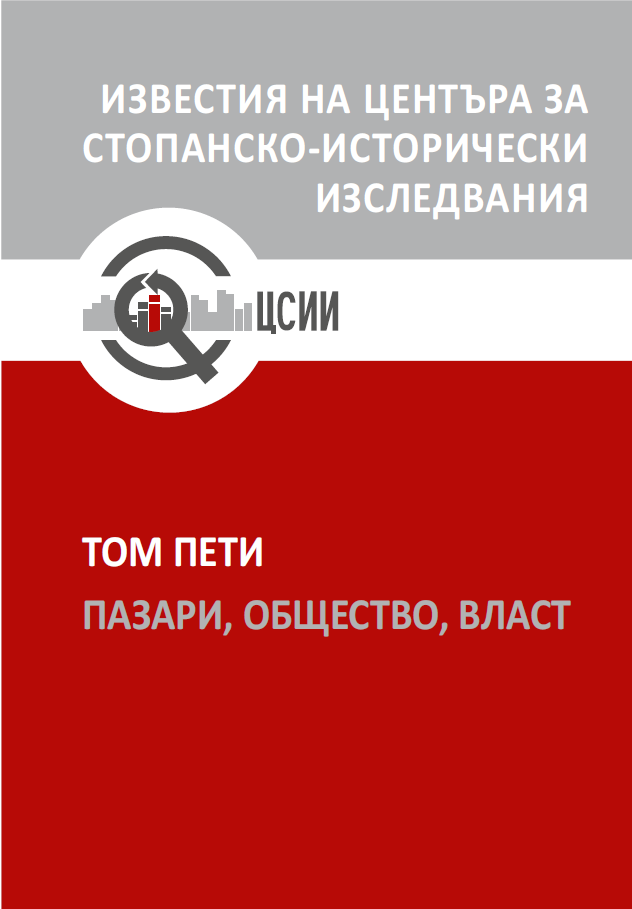Българският „капитализъм“ и митническата политика през 20-те и 30-те години на XX в.
The Bulgarian „capitalism“ and the Customs Policy in the 1920s and 1930s
Author(s): Petar StoyanovSubject(s): History, Economy, Cultural history, National Economy, Business Economy / Management, Comparative history, Economic history, History of ideas, Local History / Microhistory, Political history, Social history, Recent History (1900 till today), Financial Markets, Socio-Economic Research
Published by: Център за стопанско-исторически изследвания
Keywords: customs; customs policy; duty-free imports; parasitic industry; crony capitalism; corporate socialism
Summary/Abstract: Bulgaria in the period between the two world wars was one of the countries that make extensive use of customs and customs policy as a powerful instrument for influencing trade, production and public finances. In this sense, this report aims at presenting trends, developmental features and clarifying the main factors responsible for the problematic status of customs duties and the customs regime. The customs policy is a very good barometer of the state of national capital and one of the important tools supporting its formation, also revealing very well the actual specifics of the ruling socio-economic system. For this reason, with the present publication the author aims also to pay attention to the problems related to the adequacy of the terminology used to describe the economic system during that period.
Journal: Известия на Центъра за стопанско-исторически изследвания
- Issue Year: V/2020
- Issue No: 1
- Page Range: 246-261
- Page Count: 16
- Language: Bulgarian

